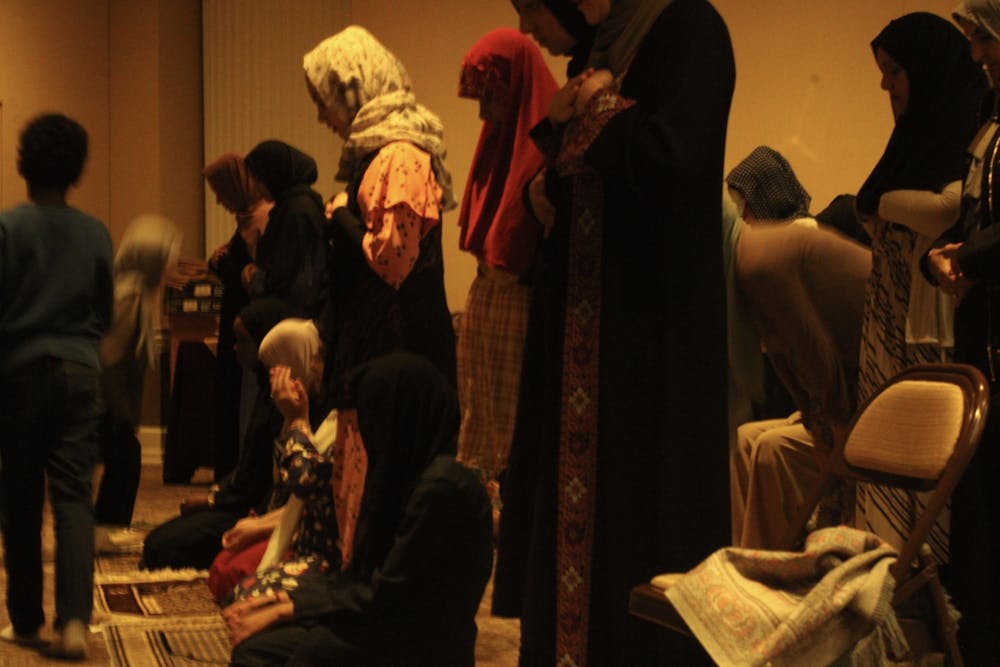Muslim, Hindi and Christian Elon University students and community members broke their fasts Tuesday evening. The interfaith celebration of Muslim iftar was organized by the Truitt Center for Religious Life and the Global Neighborhood in collaboration with the Burlington Masjid, Alamance County’s only mosque. While eating, the religious communities reflected on their faith together.
Iftar is a meal that is taken at sundown by Muslims when observing Ramadan — the ninth month of the Islamic calendar where Muslims fast during the day and dedicate themselves to their faith through prayer and reflection.
Both Muslims and Christians traditionally fast during Ramadan and Lent — the 40 days Jesus Christ spent fasting in the desert and resisting temptation from Satan.
This week is also when Muslims, Jewish people and Christians observe their respective holidays — Ramadan, Passover and Easter. Usually, Ramadan is celebrated in different seasons due to their calendar since the Islamic calendar uses lunar months. The lunar months are shorter than the solar months used by the Western calendar.
Before the sun set, an interfaith panel of Muslims, Hindus and Christiansconsidered the shared qualities of fasting and its different religious interpretations. Fasting was discussed as a time for self-reflection and giving. The many similarities in faith were highlighted.
Sandy Marshall, professor of geography and faculty director for the Global Neighborhood, was in charge of organizing the event. Marshall, a practicing Muslim, thought fasting to be something that unites faith more than it divides.
When the sun began to set, the iftar began. Two group prayers ensued and the fast was broken together. The Muslim and Christian students then lined up to eat and sit with one another.
Associate Chaplain for Muslim Life, Imam Shane Atkinson, said an inclusive iftar brought out similarities in people, and further spotlighted unity.
“There is a oneness to life and a oneness of the human family,” Atkinson said.
Atkinson added eating together and fasting together helps you “look beyond your physical self” and build empathy.
“It helps you think about people that are less fortunate,” Atkinson said. “It calls us to be the best version of ourselves and push ourselves”
The event was partially sponsored by the Burlington Masjid and served as a fundraiser that would supply the mosque’s pantry and medical clinic, two services which are offered for free year-round, not only during Ramadan.
To many Muslims, Ramadan is a time to build empathy and strengthen the tenets of their religion. Two of the Pillars of Islam are giving and fasting, which are both highlighted during Ramadan. The Prophet Muhammed said, "The best charity is the one performed during the month of Ramadan."
Amal Khdour runs the Burlington Masjid clinic and said giving humans their basic needs isn’t about religion.
“We call each other brothers and sisters even though we are not related,” Khdour said. “We address each other out of respect, kindness and love for one another.”
Ramadan has been ongoing since March 22 and will end on the evening of April 20. Lent ended April 6.


